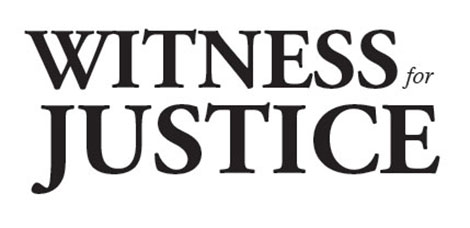Commentary: Noble Character Traits and Human Rights

A delegation from Egypt recently visited the U.S. for a week, meeting with civic, religious, and civil society leaders. The visit was part of an ongoing Egyptian-U.S. Dialogue Initiative, organized jointly by Global Ministries of the United Church of Christ and Christian Church (Disciples of Christ) and our partner in Egypt, the Coptic Evangelical Organization for Social Services (CEOSS), among others. The Initiative is an effort to increase contact among people from different strata of society—Muslims and Christians, parliamentarians, journalists, and academics—to create understanding about each other that goes beyond headlines.
One of the members of the Egyptian delegation is among the descendants of the Prophet Muhammad. A consistent theme as he spoke was the promotion of makaram al-akhlaq, or “noble character traits,” conveying ethical behavior, dialogue, nurturing good relationships and treatment of others, truth, and justice; and a rejection of violence, oppression, and hatred. It imagines a more ideal human community, and is based on the common teachings of the monotheistic faiths, including Islam and Christianity.
A consistent point of criticism of current and past Egyptian governments has been their disregard for human rights. In a meeting at the US State Department, the delegation heard those concerns reiterated. Ironically, while the Egyptian delegation was in this country, the U.S. Supreme Court upheld President Trump’s so-called “Muslim ban” and just days before, the U.S. had pulled out of the U.N. Human Rights Council. Images of weeping children torn from their parents along the U.S.-Mexico border and held in cages were broadcast on most news channels; the U.S. is the only U.N. member that is not party to the UN Convention on the Rights of the Child. The delegation saw first-hand America’s poor and homeless in the streets of the cities it visited. And the reality of racism here—including the mass incarceration of African Americans, and police shootings—was discussed as well.
The U.S. withdrawal on June 19 from the U.N. Human Rights Council, therefore, seemed both hypocritical and appropriate, given our own violations of human rights. The U.S.’ stated reasons for quitting the Commission were the admission of countries that violate human rights, and a bias against Israel. U.N. Commissioner for Human Rights, Prince Zeid bin Ra’ad Hussain of Jordan, tweeted, “Given the state of #HumanRights in today’s world, the U.S. should be stepping up, not stepping back.” Since we joined in 2009, the Council’s criticism of Israel has declined significantly, despite its continuing occupation of Palestinian lands, and its two-tiered court system in the West Bank, which affords Israeli settlers access to Israeli civil courts, while stateless Palestinians are subject to Israeli military law and courts, denying them their basic human rights. Through this system, Palestinian children and youth are subject to physical and verbal abuse, strip searches, solitary confinement, coerced confessions, and separation from their parents and legal counsel. Despite this the U.S. sends more than $3 billion annually in direct military support to Israel, and has recently slashed its support for the UN agency that cares for Palestinian refugees, UNRWA.
“Noble character traits” have been replaced by the politicization of human rights. No country is innocent of violations. Our faiths teach us to transcend petty politics and treat each other with the dignity each person deserves. Striving to live out those noble character traits can set us on the path toward a truer peace with justice.
Peter Makari is Executive, Middle East and Europe Global Ministries of the United Church of Christ and Christian Church (Disciples of Christ).
View this and other columns on the UCC’s Witness for Justice page.
Donate to support Witness for Justice.
Click here to download the bulletin insert.
Related News
Powers and Principalities
As a movement organizer and activist, I appreciate the clarity that emerges when communities...
Read MoreHeart-Centered Leadership
“Fear is such a powerful emotion for humans that when we allow it to take us over, it drives...
Read MoreDelving into Deeper Connection
i received two “Cs” in Seminary, one of which was for a class on the art of worship with...
Read More
